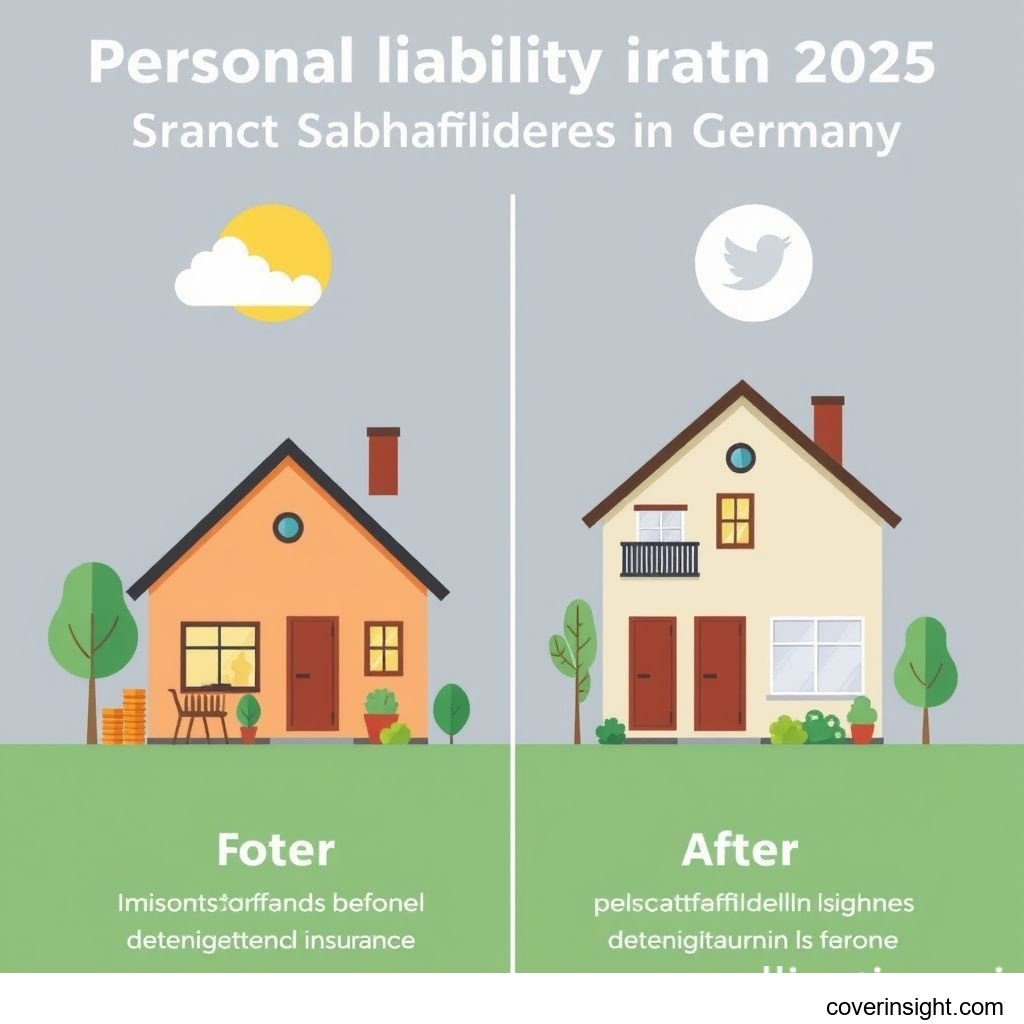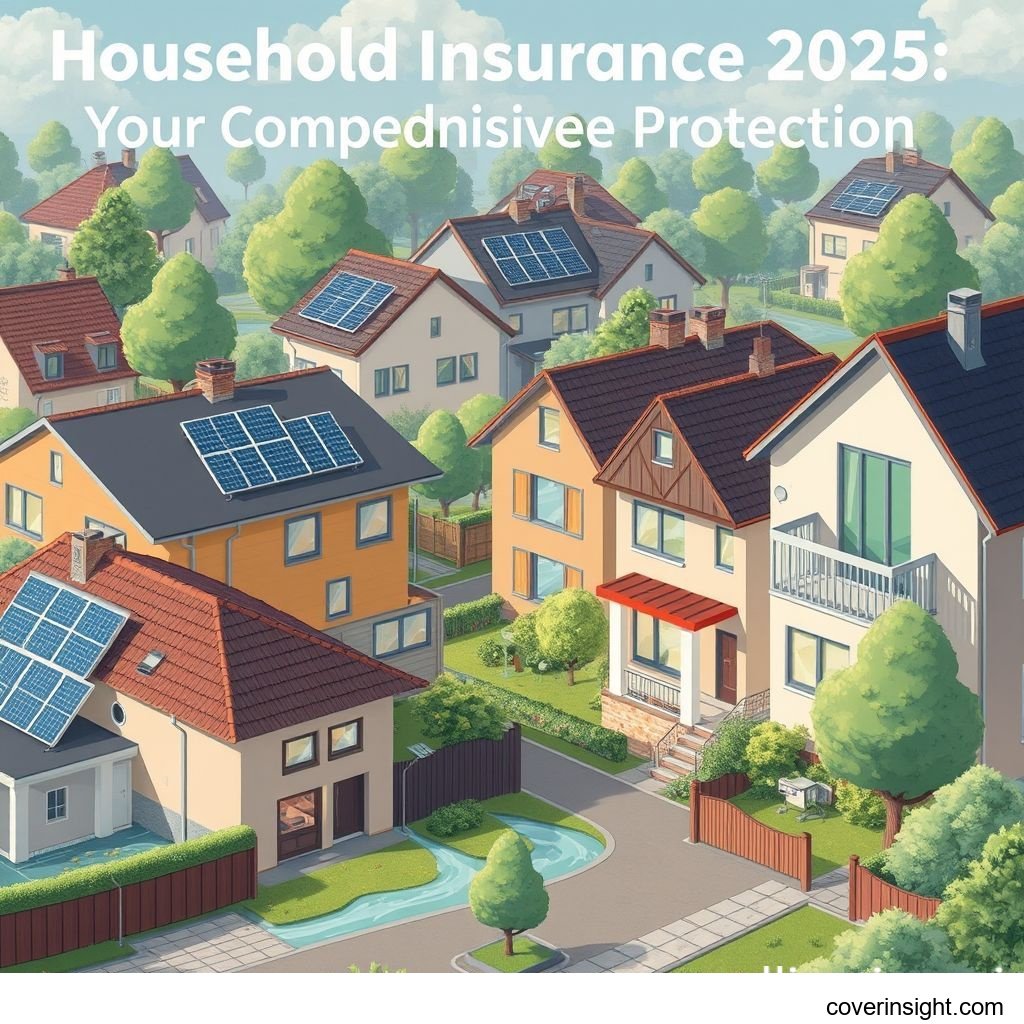Introduction
Just as a comprehensive resource like the Studentenversicherungen Guide in DE (2025) is vital for students to navigate their insurance landscape, understanding the nuances of Wohngebäudeversicherung (building insurance) is paramount for homeowners, especially as we approach 2025. With advancements in smart home technology, there's a growing opportunity for homeowners to secure significant discounts on their building insurance. This guide aims to shed light on how smart home systems can not only enhance security and comfort but also lead to tangible savings on your Wohngebäudeversicherung in 2025, ensuring you save smart and live secure.
Coverage Details
What’s Included
Wohngebäudeversicherung typically covers damage to the structure of your house and permanent fixtures caused by perils such as fire, storm, hail, tap water, and often extends to cover natural hazards like flooding, earthquakes, or landslides (elementarschaden). For homeowners, this means protection for the very bricks and mortar of their investment, from the roof over their head down to the foundations. Modern policies are increasingly recognizing the value of smart home installations. For instance, integrated smoke detectors, smart leak sensors, and connected alarm systems are not just for peace of mind; they actively mitigate risks. Many insurers now offer specific "Smart Home Rabatte" (smart home discounts) because these systems reduce the likelihood or severity of claims.
Common Exclusions
While comprehensive, Wohngebäudeversicherung does have its limits. Typically, damages from nuclear energy, war, or intentional acts by the homeowner are excluded. Furthermore, gross negligence can sometimes reduce your claim payout. Wear and tear, maintenance issues, and damage to movable property within the house (which falls under Hausratversicherung, or home contents insurance) are also not covered. It's crucial to differentiate between these two types of policies. As you explore your options, remember to consult reliable guides like those found under Insurance Resources Global to ensure you understand the full scope of coverage.
Cost Analysis
Price Factors
The premium for your Wohngebäudeversicherung is influenced by several factors. The construction type of your home (e.g., brick, wood), its age, size, and location (e.g., flood zone risks) all play a significant role. The sum insured, which should reflect the reinstatement value of your property, is another key determinant. Your chosen deductible (Selbstbeteiligung), the amount you pay out-of-pocket before insurance kicks in, also impacts the premium; a higher deductible usually means lower monthly payments.
Saving Tips
This is where smart home technology truly shines for your wallet. Many German insurers are now offering attractive discounts for homes equipped with specific smart security and safety features. Installing a certified alarm system with direct connection to a security service, smart smoke detectors, water leak sensors, or even smart energy management systems that prevent electrical overloads, can significantly reduce your premium. For example, the GDV (Gesamtverband der Deutschen Versicherungswirtschaft – German Insurance Association) has highlighted how such preventative measures can lead to fewer claims. According to recent GDV data, homes with comprehensive smart safety installations can see discounts of up to 10-15% on their building insurance premiums.
Consider the example of the Müller family in Dresden. After installing a smart leak detection system and a connected alarm system, their insurer, a major German provider, offered them a noticeable reduction on their annual premium. The initial investment paid for itself within a few years, not just in peace of mind but in real cash savings. When seeking a new policy or reviewing an existing one, always inquire about "Smart Home Rabatte" and what specific certifications or installations qualify. Exploring options on platforms like DE Insurance Home can help you compare offers efficiently.
FAQs
How much does Wohngebäudeversicherung cost?
The cost of Wohngebäudeversicherung varies widely, typically ranging from a few hundred to over a thousand Euros per year, depending on the factors mentioned above, such as property size, location, and the level of coverage chosen. Smart home discounts can notably bring this down.
What affects premiums?
Premiums are primarily affected by the property's construction type, age, size, location (especially natural hazard risks), the sum insured, your chosen deductible, and any risk-reducing measures like smart home installations.
Is Wohngebäudeversicherung mandatory?
No, Wohngebäudeversicherung is not legally mandatory in Germany. However, for homeowners, particularly those with a mortgage, it is highly recommended, and often required by lenders, as it protects a significant investment.
How to choose the best Wohngebäudeversicherung for my smart home?
When choosing, compare offers from different providers, paying close attention to what specific smart home features they recognize for discounts. Look for policies that offer comprehensive coverage for perils relevant to your area and have a good reputation for claims handling. Don't shy away from asking detailed questions about the terms and conditions related to smart home integration. Always verify the insurer's credibility through official bodies like BaFin - Federal Financial Supervisory Authority.
Consequences of no coverage?
Without Wohngebäudeversicherung, you bear the full financial risk of any damage to your property. A fire, major storm, or burst pipe could lead to devastating costs, potentially totaling hundreds of thousands of Euros, which could force you into severe debt or even bankruptcy. It's a risk most homeowners in Germany are not willing to take.
Author Insight & Experience:
Based on my experience living in Germany and navigating the local insurance landscape, it's clear that while the initial investment in smart home technology can seem substantial, the long-term benefits, especially through insurance premium reductions, are often underestimated. As someone who's seen the shift in how insurers view proactive risk management, it's truly a no-brainer for homeowners to explore these "Smart Home Rabatte." It's not just about saving money; it's about investing in a safer, more secure home, and that peace of mind is, in my opinion, priceless. It’s always worth asking your insurer: "Was ist drin?" – "What's in it for me?" when it comes to smart tech.






Comments